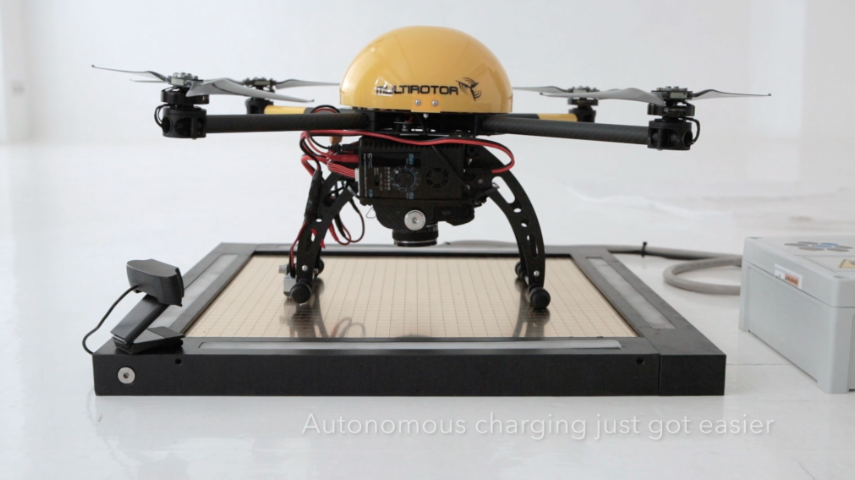Autonomous indoor surveillance drones could be coming to a building near you
Buildings and offices of the future may soon be patrolled by a fleet of flying security drones every night.
These autonomous devices are equipped with security cameras and fly along corridors on pre-programmed routes, on the lookout for intruders and capable of recharging themselves on a power pad when their batteries run low.
Read More:
- The complete guide to US drone ownership
- Amazon wants to keep us safe with self-destructing delivery drones
- DJI Mavic Air drone review
The drones are the result of a new partnership between Skysense, a US/German drone charging company, and Avansig, a technology firm from Spain. They will first be used at Prosegur, a multinational security company also based in Spain.
Skysense's wireless charging technology means the drones can land on a pad and recharge their batteries without any human involvement. This makes them the ideal nighttime security system, as they can return to the pad and top up their batteries autonomously, then return to work.
"Prosegur's surveillance drone can execute its own patrol route and land itself on Skysense's charging pad to recharge," Skysense said in a blog post announcing the partnership. "During surveillance patrols, the drone records and streams real-time video, and sends alerts to the security central station when potential security threats or breaches are discovered."
Skysense/AVANSIG from Skysense on Vimeo.
There is no word yet on how long the drones can fly for between trips to the charger, or how long the batteries take to refill, although Avansig chief executive David Trillo said Skysense's technology was chosen partly because of its short charge times.
A video produced by Skysense shows how the drones can patrol along corridors, flying in and out of rooms (with the doors left open, naturally), capturing a 360-degree view of their surroundings.
The benefits here are obvious, as the drones can provide better visual coverage than fixed-position security cameras, and they do not tire or get distracted like human security guards. We can see the drones being used in large office buildings at night, when their flying could be a more efficient way of scanning the premises than repeatedly walking the corridors.
However, the companies developing and using these drones must be aware of the privacy implications of such surveillance systems.
